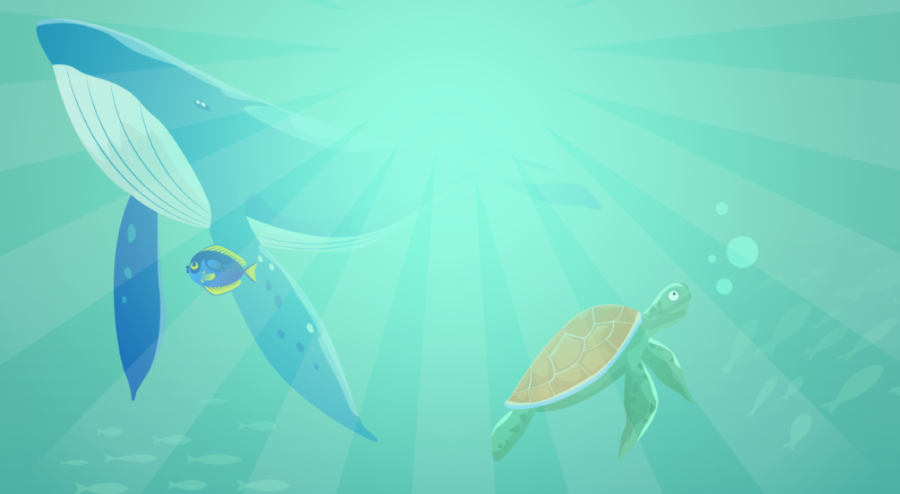5 Ways to Look After The Oceans When Travelling
/World Water Day is an annual observance that takes place on March 22nd to raise awareness about the importance of water and the need to conserve this precious resource. It was first designated by the United Nations General Assembly in 1993 and has been observed every year since then.
The theme for World Water Day 2023 is "Water for society: Including all," which focuses on the importance of ensuring access to clean and safe water for all people, regardless of their social, economic, or geographic circumstances. The theme also emphasizes the need to consider water in all aspects of society, including health, education, agriculture, energy, and industry.
The day provides an opportunity for individuals, organizations, and governments to highlight the importance of water conservation and the need to take action to protect and preserve this vital resource. It also serves as a platform to promote sustainable management practices and to raise awareness about the challenges facing water resources around the world.
World Water Day is an important reminder that access to clean and safe water is not only essential for human health and well-being, but also for economic growth and sustainable development.
This is a vital resource for all of us and it’s easy to forget when travelling that you should take this into account.
As a tourist it can be easy to let loose, let go, and focus only on you. However, we all have a responsibility when travelling overseas to ensure we clean up after ourselves and keep places as beautiful as when we arrived.
Conserving water while traveling is important not only for the environment but also to ensure that you have enough water during your trip. Here are some tips to help you conserve water while traveling:
Take shorter showers: Try to limit your shower time to five minutes or less. You can also turn off the water while you are lathering up with soap or shampoo.
Reuse towels: Rather than having your towels washed every day, hang them up to dry and reuse them. This helps to conserve water and energy.
Turn off the tap: When brushing your teeth or shaving, turn off the tap while you are not using the water.
Bring a reusable water bottle: Instead of buying bottled water, bring a reusable water bottle with you and refill it from a tap or water fountain.
Choose eco-friendly accommodations: Look for hotels or accommodations that have eco-friendly practices, such as using low-flow showerheads and toilets, and recycling water.
Use water-efficient products: Consider using water-efficient products, such as dry shampoo or wipes, instead of using water to wash your hair or face.
Choose activities that conserve water: When planning your trip, choose activities that do not require a lot of water, such as hiking or exploring nature.
By following these tips, you can conserve water while traveling and help to protect this valuable resource.
Travel with the planet in mind
From Hawaii, home to one of the most affected beaches from plastic pollution to the Philippines Manila Bay, which sees 0.75 million tonnes of plastic entering the oceans each year, plastic pollution is a global issue. You can find out more details and test your knowledge on plastic pollution with Oceans Plastic Free who have created some fun and interactive games about the subject.
As a tourist there are some simple things, we can all do to ensure our Oceans remain clean, clear and a haven for all that call it home.
Recycle Where Possible
Just like at home, there’s always an opportunity to recycle- whether that’s by using local facilities or reusing products of your own.
When arriving at a destination, be sure to familiarise yourself with local recycling rules and locate bins. If you’re staying in a hotel, the likelihood is that there will be facilities available- however, if you are staying in alternative accommodation, you may find these facilities are located further afield.
By recycling when on holiday you could save almost 40% more plastic entering our oceans, as the WWF found that tourists cause a 40% surge in plastic litter in the Mediterranean Sea each summer.
Clean Up After Yourself
Once you have been to an attraction, be sure to take a look around and pick up any litter you may have left behind. If there are no bins located in the area, take it back to your accommodation with you. Rubbish left behind on beaches may end up in our oceans, adding to the pollution and litter left in other attractions that can harm wildlife. As well as damage to living creatures, it also ruins landscapes and can have devastating effects on tourism and local businesses.
Shop Responsibly
When food shopping, consider buying foods that are manufactured locally - this will reduce your carbon footprint as a consumer and tourist.
Trying to purchase products that are plastic-free will also help the environment, as packaging accounts for more than two-thirds of plastic waste – think before you buy.
Pollution of all kinds is a concerning prospect, but the good news is that we can all do more to ensure a better future for ourselves and the environment around us.
Disclosure: This is a collaborative post.




















